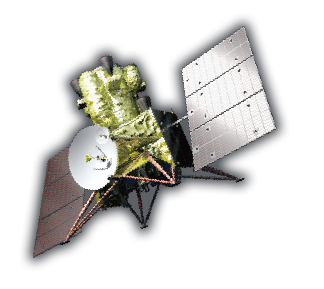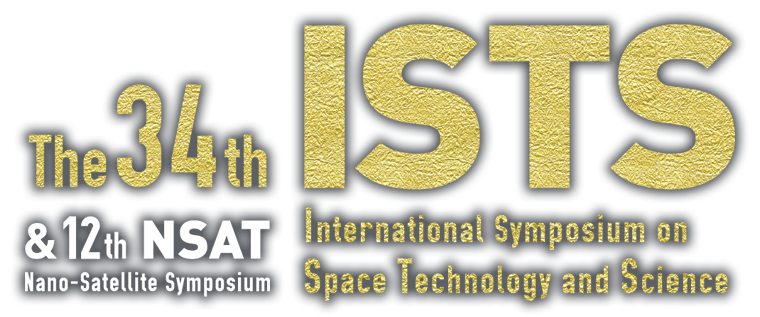Journal Publications
After the symposium, authors can submit their papers to “Journal of Evolving Space Activities (JESA)” as well as any other journals. JESA is a new original international, open access, peer-reviewed online journal, which is published in English, specifically featuring the field of space activities. JESA is hosted by J-STAGE which is an electronic journal platform for science and technology information in Japan, developed and managed by the Japan Science and Technology Agency (JST). The paper submission page for JESA will be open from July 3 to August 31.[https://www3.e-kenkyu.com/ists2023-scied/corresponding_author]
Tentative Schedule on Journal Publication (As of March 1, 2023)
- If the author would like to submit the paper to JESA, please click the radio button labeled “I submit” in the “34th Paper Submission” page by
May 8, May 29, 2023. This information is mandatory and used for organization of associate editors of JESA by ISTS publication committee. - JESA Submission period: July 3 – August 31 (Submission is allowed only for authors submitted the above questionnaire.)
- Start of publication of accepted papers: February 2024 (Target)
Space is not an area in which activities can be conducted only with technology, but also as an aggregate of a wide range of fields, including international relations, legal aspects such as debris and security, a wide range of application fields such as space science exploration, earth observation and communication, business and its finance, education, and humanities fields such as cultural anthropology and sociology. This is a broad field of activity. In addition to academic papers on science and technology, we will provide a place for the dissemination and exchange of a wide range of information by introducing academic papers and projects related to the above-mentioned broad range of “space activities,” as well as new technologies and corporate activities, and providing a place for ongoing discussions in several categories. In addition to the latest research results in all fields related to space engineering and space exploration, the journal will deal with themes that are difficult to handle in the conventional classification of academic disciplines, such as space law and space business, as well as all themes that are cross-cutting or beyond the framework of disciplines.
Accepted manuscripts are published online, after receiving the final versions of the manuscripts and article-processing charges. The journal considers submissions from the authors who have made presentations at the latest International Symposium on Space Technology and Science (ISTS). The papers are peer-reviewed by the ISTS publication committee. The accepted manuscripts will be published as Vol.2 (2024) of JESA.
All manuscripts are fully peer-reviewed with regard to their originality and importance to space activities, and must follow ethical standards in publication. The articles selected from the ISTS are categorized into Full Articles, Research Notes, and Education Programs Report in accordance with their contents and the number of pages. The audience is diverse, including global-researchers, technologists, engineers and educators who are interested in discovering and reading information vital to progress in the space activities.
Each paper submitted to JESA is allowed up to 15 pages of text, including figures and tables, but please note that the 15-page strict limit cannot be exceeded. Color graphics are acceptable. However, movie files and some kinds of software tools should not be included in the paper.
Papers with less than 6 pages will be automatically categorized into “Research Note”. Papers presented in u-session of ISTS will be categorized into “Educational Program Report” no matter how many pages when they are accepted for publication in JESA.
All the articles will be free to access and download on the J-STAGE Web page.
[https://www3.e-kenkyu.com/ists2023-scied/corresponding_author]
Manuscripts must be submitted using the ISTS manuscript submission web page (Under preparation). Manuscripts sent via conventional mail and e-mail cannot be received. The author (s) must fill in the information required for the author (s), the abstract and so on, as requested on the manuscript submission web page, and electronically upload a PDF file of the article.
The manuscript must be prepared using the template available on this page. The author (s) must convert the manuscript into a 600 dpi PDF file upon submission. The maximum size of the PDF file is 5MB. Please be advised that the PDF file must be readable, regardless of the machine used to access it, excluding any particular fonts, such as Japanese fonts. The author (s) is/are requested to preview the file before submission.
If the manuscript is accepted, the corresponding author is requested to prepare both, a final version PDF and the original data (Word, TeX or Text) of the manuscript, as directed by the Editorial Office. Style check service will be provided by the Editorial Office before upload to J-STAGE Web page.
All accepted manuscripts submitted to JESA are published Open Access under a Creative Commons (CC) license. Authors can choose one of the following licenses: CC BY or CC BY-NC-ND. Once selected, the terms of the Creative Commons licenses are irrevocable. It is the author’s responsibility to ensure that their chosen license complies with their funding body’s requirements.
CC BY 4.0 International (Attribution) license: This license lets others copy, distribute, remix, and build upon the article, even commercially, provided the original source and authors are credited.
CC BY-NC-ND 4.0 International (Attribution-NonCommercial-NoDerivatives) License: This license allows users to non-commercially distribute and reproduce an unmodified article, provided the original source and authors are credited.
The contents of any manuscript submitted for publication in JESA must not have been previously published anywhere, exceptions shall include articles presented for the proceedings of a conference or a collection of papers organized by ISTS. Manuscripts cannot be accepted, if they do not have explicit statements that the contents have security clearance. Authors of articles, derived from government funding, will be asked to confirm that the journal has specific rights to publish the article.
The responsibility for the contents of contributions is solely resides with the persons, who have prepared them.
Once the manuscript has been accepted for publication and the author (s) informed, the first author of the accepted manuscript is required to pay the article-processing charges indicated below.
Article-processing charges (APC) (Tax included)
There are many costs associated with publishing scholarly journals, such as those of managing peer review, copy editing, typesetting and online hosting. To cover these costs in the absence of journal subscriptions, authors (or their representatives) are asked to pay article processing charges (APCs). There is no submission fee.
- 50,000 JPY
The APCs indicated above does not include the language editing service. Thus, authors must prepare the grammatical errors free manuscript. If the manuscript is not written in appropriate English, it may be rejected before the review process.
How to prepare for manuscript


